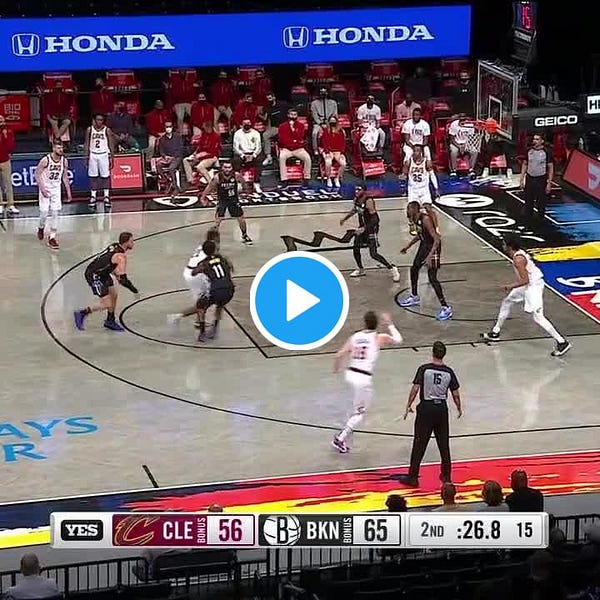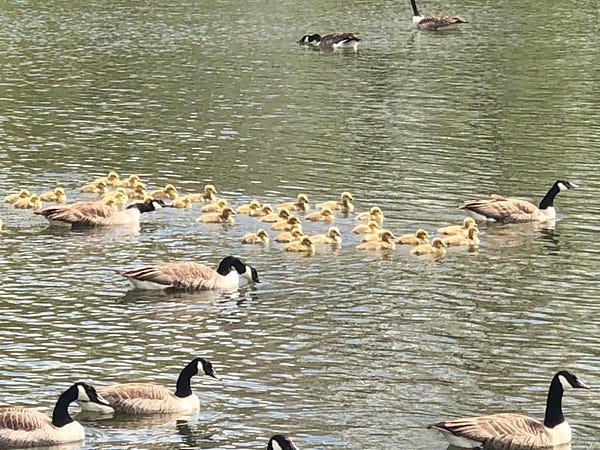5/19/21 - smart, useful, science stuff about COVID-19
BIG CHANGES IN U.S.
PUBLIC HEALTH;
1) A total of 23 U.S. states and Washington, D.C., recently have changed their face-coverings and mask guidance in response to last week's Centers for Disease Control’s update to its guidance for fully vaccinated people, reports Lindsay Kalter for WebMD (5/18/21). The WebMD story’s second page links to various state’s plans for lifting mask mandates: https://www.medscape.com/viewarticle/951411.
VACCINES:
2) A growing body of evidence, including a study published 5/15/21 in The Lancet and another published 5/6/21 in JAMA, suggests that the Pfizer-BioNTech vaccine not only protects us against moderate or severe COVID-19. It also protects us against getting infected with SARS-CoV-2 and thereby protects against us transmitting infections to others. Lower amounts of the virus persist in the nasal passages of vaccinated people than in those of unvaccinated people, Dr. Anthony Fauci said 5/16/21 on CBS News’ “Face the Nation.” There are very rare “breakthrough infections” of SARS-CoV-2 in vaccinated people, but “almost always the people [with these infections] are asymptomatic [feel no symptoms], and the level of virus is so low, it makes it extremely unlikely, not impossible, but very, very low likelihood that they are going to transmit it,” Fauci said. These findings, along with ongoing evidence that the vaccines are safe and effective, even against SARS-CoV-2 variants, provided the scientific basis for the U.S. Centers for Disease Controls’ guidance (5/13/21) stating that vaccinated people no longer need to wear masks nor socially distance in most indoor and outdoor settings, even crowded ones, reports Apoorva Mandavilli at The New York Times (5/14/21): https://www.nytimes.com/2021/05/14/health/cdc-masks-vaccines-variants.html.
3) In a New York Times survey conducted between April 28 and May 10, 85% of more than 700 epidemiologists responded that they think people in the U.S. will be able to safely gather outdoors on July 4th , as the nation “rounds the bend” (as some writers put it) on the COVID-19 pandemic. Nearly the same percentage of epidemiologists think that U.S. schools can safely reopen in the fall, according to the survey results, as reported by the Times. Another notable finding from the survey: the majority (59%) of the surveyed epidemiologists think that vaccination rates are the most important statistic to examine when considering whether to "resume most pre-pandemic activities without new COVID-era precautions.” And what vaccination rate or level should you look for? "Half of respondents said at least 80 percent of Americans, including children, would need to be vaccinated before it would be safe to do most activities without precautions," write Claire Cain Miller, Kevin Quealy, and Margo Sanger-Katz (5/15/21): https://www.nytimes.com/2021/05/15/upshot/epidemiologists-covid-return-normal.html.
4) And, where does one find U.S. federal, state, and county vaccination rates? Some experts frequently consult the New York Times' various COVID-19 dashboards, including this U.S. vaccinations tracker, which allows you to look up the percentage of people in each U.S. county who are fully vaccinated. Of course, any single statistical measure provides limited information. Additional factors that influence a region’s SARS-CoV-2 risk include local immunity among people who have recovered from SARS-CoV-2 infections or COVID-19 in the past 14 months (areas that have recovered from coronavirus surges will have higher rates of this “natural immunity”) as well as public-health measures such as masking and distancing requirements: https://www.nytimes.com/interactive/2020/us/covid-19-vaccine-doses.html.
5) To keep tabs on the progress of Covid-19 vaccine development and approvals worldwide, The New York Times’ coronavirus vaccine tracker remains quite useful and up to date. The vaccine tracker now includes information on more than 100 vaccines or vaccine candidates at various stages of testing, authorization and approval. By Carl Zimmer, Jonathan Corum and Sui-Lee Wee: https://www.nytimes.com/interactive/2020/science/coronavirus-vaccine-tracker.html.
6) The U.S. federal government’s 5/12/21 move to extend the authorization of the Pfizer-BioNTech COVID-19 vaccine to 12- to 15-year-olds brought relief to many parents of teens, particularly as a growing portion of new U.S. infections had been reported in children and teens. Children often have milder cases of COVID-19 if they feel symptoms at all, but some come down with a rare but severe multi-system inflammatory syndrome (MIS-C) or long-haul Covid (symptoms that can take months to fade or go away). Plus, unvaccinated children can potentially transmit the virus, only they seem to be less effective at doing so than unvaccinated adults. The federal decision was based in part on the results of a study of the Pfizer vaccine in 2,260 U.S. preteens and adolescents, reports Carmen Heredia Rodriguez at PolitiFact (5/14/21). The group’s immune response, as measured by antibodies, “was even stronger than what was seen in 16- to 25-year olds,” the story states. Side effects in teens were "similar to those seen in young adult populations,” Heredia Rodriguez writes. It’s still unclear whether the authorization will prompt schools to require teens to be vaccinated this fall, the story states: https://khn.org/news/article/what-does-approval-of-the-pfizer-vaccine-for-teens-and-preteens-mean-for-my-child/.
7) Pfizer plans to apply for authorization for its COVID-19 vaccine to be administered to children aged 2-11, according to a 5/4/21 report by Emily Anthes for The New York Times. Some experts expect this to occur around September. And the company reportedly plans to ask the U.S. Food and Drug Administration this month to bump up the status of the vaccine in adults (ages 16-85) from “emergency-use authorization" to full approval: https://www.nytimes.com/2021/05/04/health/pfizer-vaccine-children-approval.html.
8) At Your Local Epidemiologist, Katelyn Jetelina lists four reasons why people who’ve recovered from COVID-19 still should get vaccinated against the disease (5/5/21). First, the vaccine strengthens your immune defense beyond what you would get from a past infection, Jetelina writes. Second, the vaccines appear to “better protect against variants than natural infection,” research shows, Jetelina writes. Recent findings have given scientists "reason to believe natural infection just doesn’t work as well against new variants,” she writes: https://yourlocalepidemiologist.substack.com/p/ive-recovered-from-covid19-why-do.
9) Don’t be misled by media coverage of extremely rare reactions to COVID-19 vaccines and of breakthrough cases (people test positive for the virus after vaccination). These risks are extremely low compared with the risk of severe COVID-19 and the continued spread of the new coronavirus. "An infection rate of 5,800 infections out of 77 million fully vaccinated people [in the U.S.] is less than 0.008 percent — a remarkably low rate,” writes Dr. Leana S. Wen for The Washington Post (4/20/21). “A total of 5,800 infections among the inoculated is orders of magnitude [powers of 10 times] better than 68,000 infections per day in the general population [of the U.S.],” writes Wen, a visiting professor of health policy and management at George Washington University’s School of Public Health (italics are in original, not added by me). Only 7 percent of breakthrough infections have "resulted in hospitalization, and 1 percent of those infected died,” she writes. A better way to look at last month’s decision by U.S. officials to pause the use of one COVID-19 vaccine, she adds: “Federal officials are being so cautious that they are willing to stop for a possible side effect that is literally so rare that it’s one in a million”: https://www.washingtonpost.com/opinions/2021/04/20/covid-19-vaccines-are-an-extraordinary-success-story-media-should-tell-it-that-way/.
10) In freelance journalist Tara Haelle’s 5/13/21 story for Scientific American about the U.S. authorizing the Pfizer-BioNTech vaccine in adolescents, I learned about a site called VaxTeen. The site states that it is designed to address “the decline in vaccinations” in the U.S. by directly informing teenagers and young adults about vaccine misinformation and encouraging these groups to catch up on any missing shots. One of the site’s main resources is a state by state index where teens may look up their legal rights to obtain a vaccination without parental consent. Each state’s entry includes a statement on how the local laws pertain to COVID-19 vaccinations : https://www.vaxteen.org/consent-laws-by-state.
11) Accumulating research reveals that COVID-19 vaccines are safe and effective during pregnancy, even against some of the SARS-CoV-2 variants (e.g. B.1.1.7, first identified in the UK, and B.1.351, first identified in South Africa), reports Emily Anthes for The New York Times (5/13/21). “Vaccinated women can also pass protective antibodies to their fetuses through the bloodstream and to their infants through breast milk,” Anthes writes, describing the results of a study published 5/13/21 in JAMA. And neither the Pfizer-BioNTech vaccine nor the Moderna vaccine harms the placenta during pregnancy, Anthes describes a 5/11/21 study as finding. More research is needed to study these same questions in women at earlier stages of pregnancy, the story states: https://www.nytimes.com/2021/05/13/health/vaccine-pregnancy.html.
PUBLIC HEALTH:
12) Related to previous entry, COVID-19 itself (not the vaccine against it) increases the risk of complications in pregnancy, a study of more than 2,000 pregnant people at hospitals in 18 countries found, reports Jocelyn Kaiser at Science (4/22/21). The risks can include severe illness, death, pregnancy complications and preterm birth, Kaiser writes. The study results were published 4/22/21 in JAMA Pediatrics: https://www.sciencemag.org/news/2021/04/clear-link-emerges-between-covid-19-and-pregnancy-complications.
13) In Farsi, the weekly Covid Cast features virologist Mahan Ghafari and immunologist Mehrnoush Jafari. The podcast provides covid news and debunks misinfo for Persian-language audiences (Iran, Afghanistan, etc.). The podcast is produced by Montreal-based freelance science journalist Pouria Nazemi: https://anchor.fm/covidcast2/episodes/COVID-CAST---Episode-5-e100tqn.
ENTERTAINMENT:
14)
15)
16)
17)
————
TEA SUPPLY GOOD: Thanks to my patrons! However, I no longer wish to receive donations for this newsletter. Please feel free to cancel Patreon commitments.
THE PUBLISHING INDUSTRY: A lot of online media content is free during the pandemic, as a public service, but publishing, like many industries, is struggling. If you have the means, please subscribe to or purchase worthy publications.
TAG ME: Please reply to this email to send feedback and/or good SARS-CoV-2 or COVID-19 science coverage that you’ve read, written, or produced in English, Spanish, French, etc.
Love/In friendship, Robin










